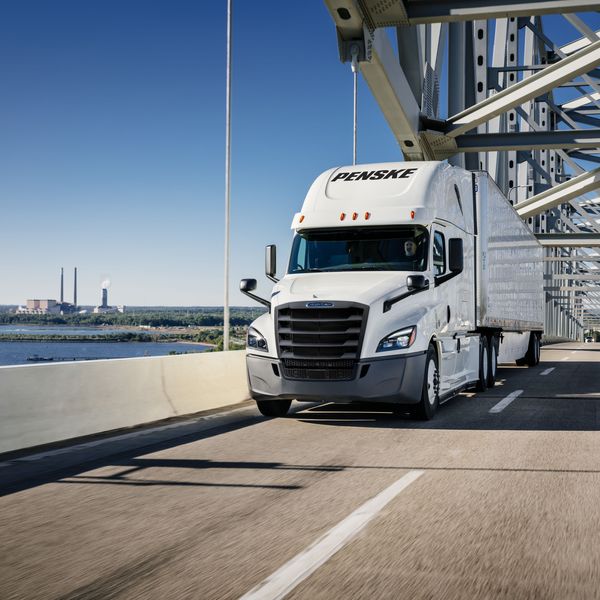Ensure Brake Safety Year-Round With Effective Inspections

Brake safety is crucial for safe operations, and regular inspections by qualified service technicians, and proper pre- and post-trip inspections by drivers, can ensure brakes perform as expected.
“Commercial Motor Vehicle (CMV) brakes are designed to hold up under tough conditions, but they must be inspected and maintained carefully and consistently so they operate and perform properly throughout the vehicle’s life,” said the Commercial Vehicle Safety Alliance (CVSA).
Brake-related violations comprise the largest percentage of all out-of-service violations cited during roadside inspections. “Improperly installed or poorly maintained brake systems can reduce the braking capacity and stopping distance of trucks and buses, which poses a serious risk to driver and public safety,” CVSA said.
Chris Hough, vice president of maintenance design and engineering for Penske Truck Leasing, said brakes should be inspected regularly as part of a comprehensive preventive maintenance program.
Technicians check brake lining thickness and air line routing as part of their work. They also check tractor and trailer air lines for chafing and look for air leaks in general.
Hough recommends replacing or repairing brakes before they hit the Department of Transportation's minimum standard of ¼ inch. Penske replaces the brake lining between 5/16 and 3/8 of an inch as part of its PM guidance.
Out-of-adjustment and air leaks are always at the top of the out-of-service criteria, and S-cam brakes are sometimes cited as being out of adjustment when they are on the verge of adjusting. To prevent that, he advises that drivers aggressively apply the brakes at low speeds several times a month to ensure the slack adjusters adjust correctly.
Air disc brakes offer several advantages over drum brakes, including shorter stopping distances. Brake stroke is not a factor because air disc brakes do not utilize a slack adjuster. Penske made air disc brakes standard on tractors within its rental fleet in 2017, and Hough expects to see increased adoption on trailers as well.
Professional drivers can also ensure brake safety by checking air lines and brake lining thickness during pre- and post-trip inspections on both the tractor and trailer. “They can be sure glad-hand seals are in good condition and not leaking and ensure tractor and trailer air lines are properly secured and not rubbing the catwalk when connected,” Hough said.
Penske technicians check for air leaks when they conduct maintenance on a unit, and drivers should check for air leaks during pre-trip inspections. A one-minute air leak test during pre-trips confirms there is no drop in pressure.
Releasing the parking brakes and applying the brake pedal/treadle valve can help drivers monitor their air gauges. The unit should not lose more than two pounds of pressure in a one-minute period of time and a combination (tractor/trailer) should not lose more than three pounds of pressure in a one-minute period of time. If it does, it needs to be repaired before drivers continue with their trip for the day.
